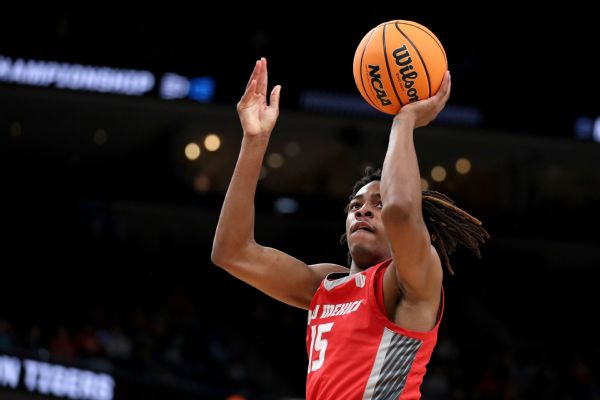![cricket:image:1429293 [900x600]](https://a.espncdn.com/i/cricket/cricinfo/1429293_900x600.jpg)
The replacements Who will fill the shoes of those picked in the first round of the NFL draft
Last September, Mike Brearley travelled to Old Trafford to watch Middlesex play Lancashire and to promote his memoir Turning Over the Pebbles. As part of the visit he was interviewed for Lancs TV by Paul Allott, who made his Test debut under Brearley's captaincy against Australia in 1981. Naturally, their conversation turned to Bazball and the ways in which Brendon McCullum and Ben Stokes have transformed the attitudes of England's players and the results of the team. Midway through their chat, Allott asked his old captain whether he'd have enjoyed captaining the current England side with McCullum as its coach. The answer came back in a trice. "Yes, I think I'd have loved it".
Now it is six months later and Brearley is sitting at his kitchen table, sipping coffee and eating an almond croissant. His answers to a different set of questions are more measured and invitingly nuanced but the enthusiasm for this England team's approach is no less keen than it was before they lost 4-1 to India. He likes the idea that Stokes' players have been liberated by possibilities rather than constrained by expectations, and he admits that some England teams during his career suffered from the latter limitation.
"I couldn't imagine anyone changing the team's morale and performance overnight in the way McCullum and Stokes have done, and you don't do that by accretions of technique or little nudges this way or that," he says. "You do it by changes of heart and attitude, and these seem to have released people from their inhibitions and tensions and the view that you must never get out playing an attacking shot if you could have defended the ball. The changes have been very much for the good."
Typically, Brearley traces Bazball to one of its sources: McCullum's resolve to change the culture of the New Zealand team he captained in 2013, a few days after they had been bowled out for 45 by South Africa in Cape Town: "Just because there is more at stake now doesn't mean you should lose the innocence of why you played the game in the first place," said McCullum in an interview. "For a long time we had lost that, and I think our team had lost it… We expected the game to owe us something. We almost felt entitled… There was no soul about our cricket… It sounds a bit corny, but we talk about the playful little boy who fell in love with the game. When you have that mindset you can be positive and aggressive because you're thinking about what can go right rather than what might go wrong."
Brearley identifies examples of the changed approach in many areas, not least selection, and talks with fascinated delight about the success enjoyed by Tom Hartley, Shoaib Bashir and Rehan Ahmed in the Test series against India.
"The old spinners like Fred Titmus and Ray Illingworth would have completely pooh-poohed the idea of anyone playing Test cricket after playing half a dozen [first-class] games, and I think I would have done too, but I thought the three young spinners kept at it and they did remarkably well," he says. "Rehan Ahmed reminds me of Warne with his strong shoulders and his busy, energetic, strong action. He certainly has chutzpah."
As so often with Brearley, there are links with his working life as a psychoanalyst. One of the abundant joys of Turning Over the Pebbles is to see how its author's profession informs his understanding of the game he has been passionate about since the age of four. For example, the chapter "Prophet to a Profession" pays tribute to the psychoanalyst Wilfred Bion, a figure who is probably well known only to specialists. For Bion, the essence of psychoanalytic treatment is "to introduce the patient to that person with whom he has most dealings in his life, namely himself". Brearley takes to the suggestion that Bazball has introduced cricketers to the players they could be if they weren't so burdened down with precedent and expectation. "I think it's true of sides who could have a distinctive way of playing the game, just as orchestras could have a distinctive way of playing music," he says. "Stokes and McCullum introduced their England team to the team it could be."
Yes, but acquainting oneself with new ways of thinking can produce strange decisions. I challenge Brearley about Stokes' declaration near the end of the first day of last year's opening Ashes Test, when Joe Root was 118 not out and Australia's attack seemed to be flagging. It was a decision Brearley has described as bizarre. Or what about Root's own comment to his overnight batting partner, Ollie Pope, that he would reverse-scoop the first ball of the fourth morning's play? How can that be squared with Greg Chappell's statement, quoted in Pebbles, that "premeditation is the graveyard of batting"?
"Well, I wouldn't have declared when Stokes did and I don't advocate it, but I don't necessarily blame him because it was part of his overall approach, in which I still believe," says Brearley. "And Bazball has changed. For example, when Stokes first came to Bazball, he got out wildly in Pakistan, running down the pitch and slogging. That was a result of his determination to lead by example, but he did modify his approach.
"As to Root's reverse scoop, it's got to be almost regardless, hasn't it, and he did it for a while and had some considerable success. I have seen people readjust from a reverse scoop but I haven't seen many do it. And what Greg Chappell would allow is that you could look for something; you have in your mind where you're going to score runs off a certain bowler. Where might I get a four off Joel Garner, say?" Brearley smiles wryly at the memory. "There's a difference between looking to do it and absolutely determining to do it."
So in addition to welcoming the change in England's approach to Test match cricket, Brearley is fascinated by the way in which that approach might evolve after a series in which England's 4-1 defeat hardly reflected the balance of the five games, which were played on very fair pitches.
"I was sad that we didn't get to two-all but I thought India were the better side and they deserved to win," he begins. "I was disappointed that we didn't take advantage of the positions we were in during one or two of the earlier matches, and particularly so in Pope and [Ben] Duckett, who both made huge hundreds and then got worse rather than better.
"Pope looked just as jumpy even after making that wonderful 196 in the first Test, and Duckett played that extraordinary innings of 153 and yet lost it against Ashwin and Kuldeep [Yadav]. By the end he didn't want to block, yet he didn't want to lap. I thought [Zak] Crawley played extremely well and moderated his style but was unlucky to get good balls, and I was glad to see Root come back and play in his old way."
Brearley's knowledge is as deep and his observations as informed as one might expect, yet Pebbles is also notable for its author's continuing enthusiasm for the game and his youthful, wide-ranging desire to find out new things and learn more. Brearley's wife, Mana, says that he is more relaxed in the company of cricketers, and his editor, Andreas Campomar, believes he writes with more spontaneity on the game than on psychoanalysis, albeit that he has written a "memoir of the mind".
"Cricket is something that I feel I know more thoroughly but it's also more limited than psychoanalysis, which is about the whole of life and you're less likely to think you know it," Brearley says. "There are people still doing psychoanalysis who are more renowned and better at it than me. And after having played for all those years, it is easier to write than to play. I was more anxious because of my limitations as a batsman at the highest level, so I was more liable to get tense about batting than I am about writing or psychoanalysis. Now I'm not answerable to anyone and I still sometimes have strong views about cricket, whereas I'm still a practising psychoanalyst and I'm in the thick of it."
But what does Brearley make of the times when sport and psychoanalysis overlap? I'm not thinking about captaincy here, an area in which his expertise has frequently been explored, but more about the purpose of playing games at all and the satisfactions to be derived from them. In Pebbles, Brearley references the Dutch historian Johan Huizinga's famous book Homo Ludens - A Study of the Play-Element in Culture and also quotes Bion, for whom play was easily contaminated by the will to win, or paradoxically in Brearley's case, by his ability, which led to his being considered for a leadership role. For example: "Excellence meant that the prospect of captainship began to appear over the horizon. That would mean that the prospect of games for the sake of games would no longer be a feasible aim."
Prompted by such thoughts and connecting them to current debates, I ask Brearley whether the health of a country's sport should be judged by the health of its national team.
"That does seem to happen," he acknowledges. "If you have a view of cricket like Bion or Huizinga's, you would think that if the game is played in its purest spirit, it doesn't matter who wins. The purity of the game is in the spontaneous, playful enjoyment of it - just as young lions play without hurting each other. You do it for its own sake. I hope we never lose that, and it's actually what Stokes and McCullum are trying to achieve. But I do think winning is important - the rules of a game determine what a win is and winning is essential to a game. I'm also very suspicious of the attitude expressed by some people that they don't mind losing.
"It is nice if the national cricket team does well, especially if they play in the right spirit, as they have been doing. And there's no other way of learning how to get there, except through county cricket. So it is a function of the county game that it should produce players of international standard, just as it's a function of club cricket that it should produce players who are ready to go into county second teams and the first-class game. If you don't have those stepping stones and strengthen them, then you don't get the top level either."
Turning Over the Pebbles is published in paperback in May













